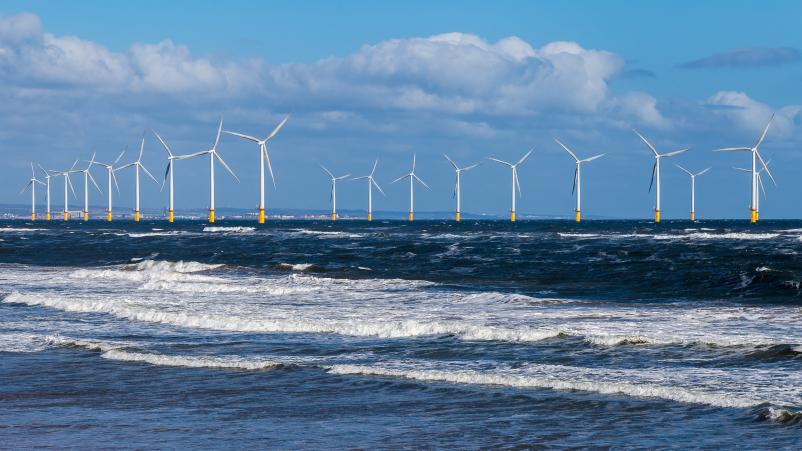Breadcrumb
Britons say wind power is top infrastructure investment priority
Our new study with Ipsos involving 22,000 citizens globally shows Britons calling for greater and faster net zero investment

Less than a third (32%) of Britons are satisfied with the state of the country’s infrastructure and a sizeable majority (68%) agree that “as a country we are not doing enough to meet our infrastructure needs”, according to the latest major study of public attitudes towards infrastructure investment from GIIA and Ipsos.
Over two thirds (70%) of Britons do not believe that the country’s infrastructure is sufficiently adapted to deal with climate change. A similar proportion (67%) agree that “we are not building the infrastructure we need quickly enough”.
Where paying for infrastructure investment is concerned, the majority (66%) of Britons agree that the cost of new investment should be spread fairly across current and future taxpayers.
The proportion (38%) agreeing that “public spending in Great Britain is already high and taxes and government borrowing should not be increased any more on improving infrastructure” is up two percentage points from two years ago.
GIIA Chief Executive Jon Phillips said: “The message from this new research is clear: the public wants us to move further and faster in delivering infrastructure investment, especially when it comes to attaining net zero.
“The proportion of Britons who say this delivery should not be facilitated by new public spending has risen, and this is where international investors can come in: taking pressure off public balance sheets by providing the inward investment needed to help drive economic growth and achieve net zero.
“The US has been the standout infrastructure investment destination over the past 12 months. As the Autumn Statement nears, the Treasury must look again at the regulatory reforms and incentives needed to increase the UK’s investor appeal.”
Britons flag wind power as their top priority area for infrastructure investment. Close to half (44%) name it is a priority, ahead of water supply and sewerage (41%), solar energy (40%), local roads (38%) and rail infrastructure (35%). The proportion highlighting nuclear as a priority area (25%) is up nine percentage points compared to 2021 when the survey was last conducted.
The study comes as an amendment to the Energy Bill, currently at final stages in Parliament, is set to ease planning rules for onshore wind projects, and the latest UK renewable energy auction round yielded no new offshore wind power capacity.
Data from Infralogic shows just shy of $4bn in new greenfield offshore wind deals were closed over the past 12 months across the UK, putting the nation second behind France ($7.2bn) as the global market leader for national deal value in the sector.
For onshore wind, by contrast, the same figure stands at $424m in the UK. That puts the nation well behind global leaders Australia ($3.1bn), the US ($2.9bn) and Brazil ($2.9bn).
A majority (63%) also agree, however, that “local communities’ views on plans for infrastructure should be heard properly, even if it means delays”.
British frustration with speed of delivery is especially noticeable in sectors such as EV charging, where just 32% are positive about the country’s current infrastructure.
The UK has secured $13.9bn in private investment for new infrastructure projects over the past twelve months. That compares to $110bn across global leader the US, where close to $370bn in green investment incentives and tax credits were signed off as part of the Inflation Reduction Act last August.